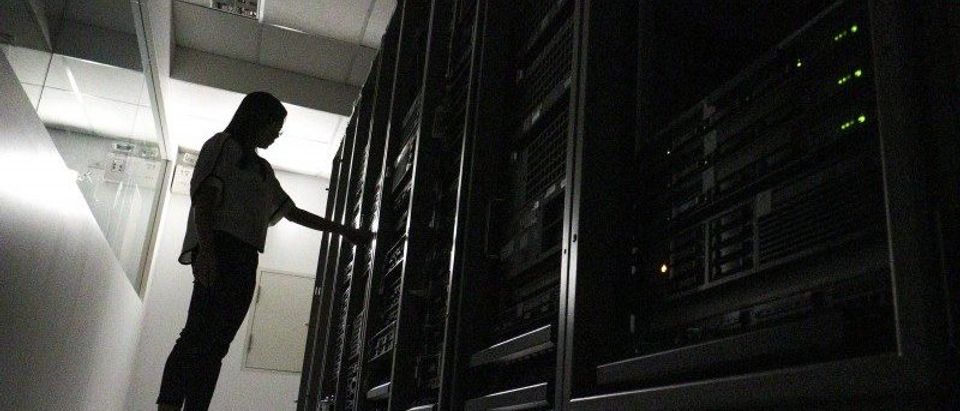The whole aim of practical politics is to keep the populace alarmed (and hence clamorous to be led to safety) by menacing it with an endless series of hobgoblins, all of them imaginary.
–H.L. Mencken
No regulatory issue in memory has been quite like that of “net neutrality.” A solution in search of a problem, bankrolled and of early and particular economic benefit to two companies, and a regulation that threatens to give government sway over an industry where it had none before, network neutrality by regulation defies logic, history, and the way the world works. Other than that it’s one terrific idea.
Net neutrality was conjured up by an alliance of left-wing activists, Democratic commissioners of the FCC, and certain Internet companies and their trade associations. The regulations that followed have been on a devolutionary path, such that what was merely bad (net neutrality under Title I) became, in 2015, very much worse – net neutrality under Title II.
Among the several unique aspects of the net neutrality wars, perhaps the most significant is the fact that all of the ISPs are in favor of the concept. Indeed, their business models depend on it. This explains why there have never been any but the most trivial examples, and very few at that, of ISPs allegedly violating net neutrality.
Another distinguishing feature is the perfervid mindset, and resort to the most preposterous sloganeering (“Net Neutrality: The First Amendment of the Internet”), of its promoters. From the presumably learned (Tom Wheeler) to the crackpots (Free Press), comes a passion for the issue that smacks of the kind of fanaticism one would expect to see where a problem and its solution are things of such genuine importance they justify the most over-the-top words and tactics.
Not so net neutrality. Looked at in terms of its practical effects, Title II regulation will cause ISPs to not do precisely nothing that they wouldn’t have done without Title II. Which is not the same thing as saying Title II won’t have any effects. It will. It will invite future (Democratic) majorities at the FCC to use their leverage over the ISPs (with the implicit threat of rate regulation) to coerce practices that, sooner or later, will impinge on content. And it’s this, the threat to First Amendment values that, if the current regulation is not removed or amended, will be the hallmark of net neutrality.
Consider the warning issued by Laurence Tribe and Thomas Goldstein, in a paper they wrote in 2009.
Net neutrality proposals rest on the mistaken premise that the Constitution gives the government a role in ensuring that the voices of various speakers receive equivalent attention and that audiences receive equal access to all speakers. In fact a central purpose of the First Amendment is to prevent the government from making just such choices about private speech, including decisions about what amount of any given kind of speech is optimal.
Like Floyd Abrams, whose unforgivable sin among progressives was to argue (and brilliantly) that Citizens United was unconstitutional, Tribe was criticized for his take on net neutrality. Consider, for instance, Columbia Law professor Timothy Wu, widely acknowledged as one of the leaders, if not the leader, of the net neutrality brigades. In 2015, Wu wrote in The New Yorker an article titled “Did Laurence Tribe Sell Out?”
Reminiscent, minus the eloquence, of Mark Antony’s funeral speech (“…and Brutus is an honorable man….”), Wu questioned, in the pose of a sympathetic inquiry, if Laurence Tribe has damaged his credibility by representing a number of corporations, including Time Warner Cable, for whom Tribe co-authored the 2009 piece. Quoth the Wu: “Tribe’s corporate work has created skepticism about where his views come from, even if they are sincere (which I believe they are), and this is what is creating the reputational damage.”
From the beginning, and to this very day, the Big Lie propagated by net neutrality’s promoters is that absent Title II regulation the cable and phone companies would discriminate against smaller and newer companies, favor their own competing content, and thereby “kill the Internet as we’ve known it.” It was a bad joke from the beginning and it’s even less funny now.
By all indications, FCC Chairman Pai and the other two Republican commissioners intend to eliminate Title II regulation perhaps as early as this year. In fact, it will be a simple thing for them, or any future FCC to do – in or out, depending on the majority of commissioners in place.
Which is why, when the dust settles after repeal and all the subsequent lawsuits have been resolved, there may then arise within Congress a genuine interest in finding some legislative solution that all parties can live with, and that comports with the spirit of the First Amendment.
Patrick Maines is president of The Media Institute. The opinions expressed are his alone, and not those of the Institute, its board, advisory council, or contributors.
Perspectives expressed in op-eds are not those of The Daily Caller.












